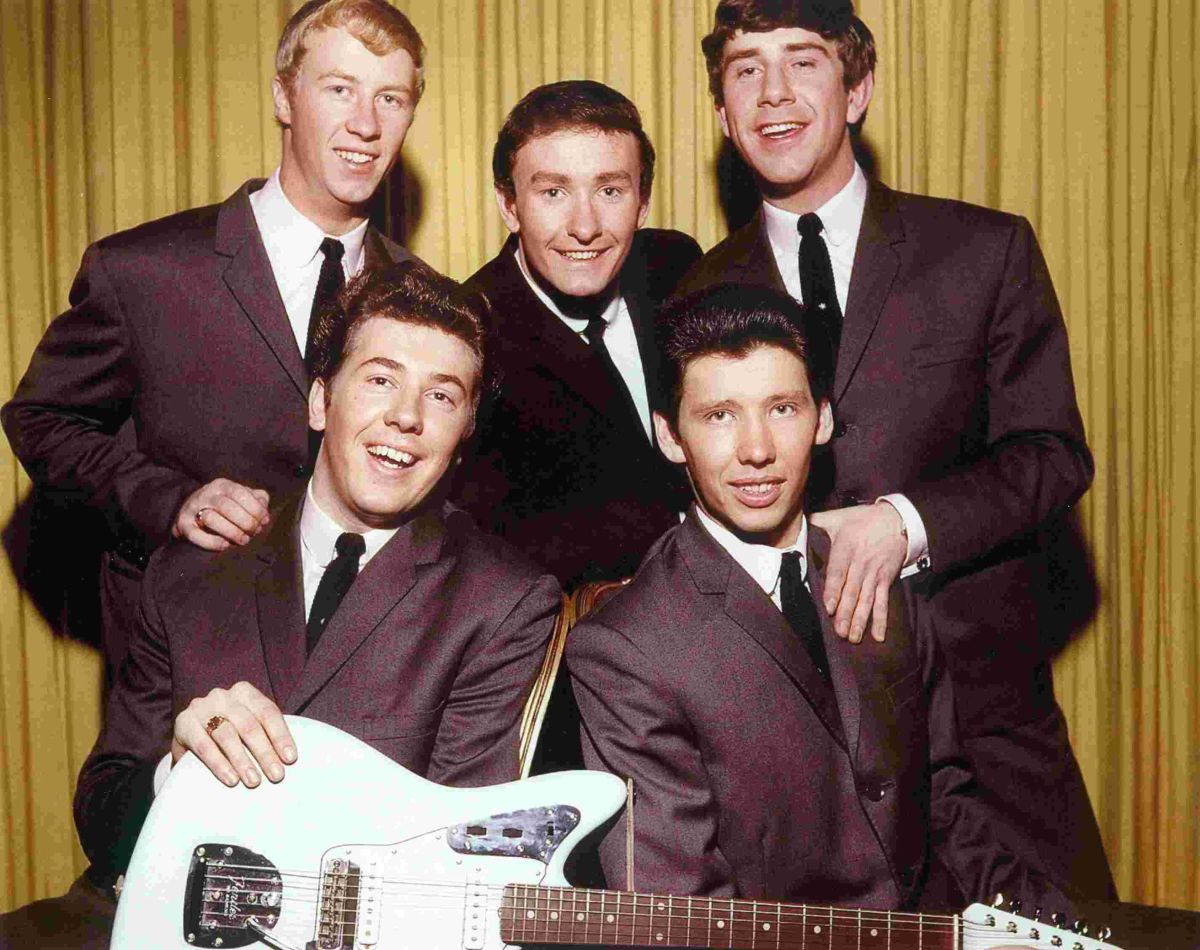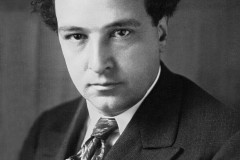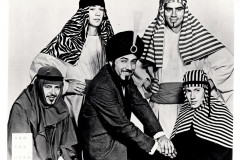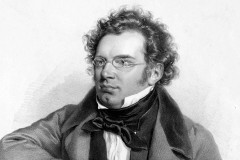A Ruben Brandt, a gyűjtő zenelistáján több feldolgozás, angolul cover is szerepel. Olyan dalok, amelyek eredetileg nem az adott előadó szerzeményei. A coverek készítőinek ma általában az a céljuk, hogy stílusban, hangszerelésben változtassanak az eredetin. Ilyenkor egyszerre élvezzük a dal ismerősségét, de az eltérését is az eredetitől. A Do you love me idejében viszont sok zenekar abból élt, hogy klubokban játszották ismert zenekarok dalait, és ezért készítették el a saját feldolgozásaikat.
Az 1941-ben született Brian Pole, egy brit hentes fia 17 évesen úgy döntött, hogy zenekart alapít. Egy ideig feldolgozásokat játszottak angol klubokban, majd 1962-ben jött el az első lemezszerződésük. Visszatekintve különösen büszkék lehetnek magukra, mert a Decca lemezcég a Beatles ellenében őket választotta. Nem sokkal később már hetekig tartották a slágerlista első helyét a Do you love me című dalukkal.
Igazából nem az ő szerzeményük volt, az eredetit a The Contours játszotta, egy amerikai R&B (rhythm and blues) zenekar, szintén a hatvanas évek elejéről. Egyetlen nagy sikerüket, a Do you love me-t Berry Gordon dalszerzőnek köszönhették. Annyira ismert lett, hogy pillanatokon belül megvoltak az első feldolgozásai is. A beatkorszak elején ugyanis kifejezetten jellemző volt, hogy az amerikai slágereknek hamar megszületett a brit változatuk, és az tarolt a brit piacon. A Beatles és The Rolling Stones is ilyen átiratokkal kezdték a pályájukat.
A Tremeloes Nagy-Britanniában további coverekkel is sikeres lett, de a hőn áhított amerikai karrier nemigen akart összejönni nekik. Bran Poole 1966-ban kivált a zenekarból, és szólókarrierbe kezdett. Mivel ebben sem találta meg a számítását, visszatért a családi hentesüzlethez, míg a Tremeloes zenekar továbbra is a pályán maradt. A legkomolyabb karriert mégis a Do you love me futotta be. Felkerült a Rock and Roll Hall of Fame 500-as listájára, amelyen a legmeghatározóbb rock and roll dalok szerepelnek, és az 1987-es Dirty Dancing című nagysikerű táncfilm zenéi között is ott van.
Do You Love Me
The soundtrack of Ruben Brandt, Collector features several covers—songs that aren’t original compositions by the performing artist, but reimagined versions of existing tracks. Today, artists typically create covers to offer a new stylistic take or instrumentation, allowing listeners to enjoy both the familiarity of the original and the novelty of the reinterpretation. But back in the days of Do You Love Me, many bands made a living performing popular hits live in clubs, and their covers were crafted with that practical purpose in mind.
Brian Poole, born in 1941 and the son of a British butcher, decided at 17 to start a band. For a while, they played covers in English clubs, and in 1962, they landed their first record deal. Looking back, they had every reason to be proud: the Decca label famously chose them instead of the Beatles. Soon after, their cover of Do You Love Me topped the UK charts for weeks.
But the song wasn’t originally theirs. It was first performed by The Contours, an American R&B band from the early 1960s. Their one big hit, Do You Love Me, was written by Berry Gordy, founder of Motown Records. It became so popular that other versions quickly followed. In the early days of the British beat scene, it was common for American hits to receive rapid-fire British covers—which often outperformed the originals in the UK. In fact, both the Beatles and the Rolling Stones began their careers with similar covers.
The Tremeloes found success in Britain with several more covers, but struggled to break into the American market. Brian Poole left the band in 1966 to pursue a solo career, but when that didn’t pan out, he returned to the family butcher shop—while the Tremeloes continued performing. Ultimately, it was Do You Love Me that had the most lasting impact. The song was included in the Rock and Roll Hall of Fame’s list of the 500 most influential rock songs, and famously resurfaced in 1987 as part of the hit film Dirty Dancing.
In Ruben Brandt, Collector, the track’s inclusion is more than nostalgic—it evokes a cultural and musical lineage that stretches across decades, styles, and continents.



















